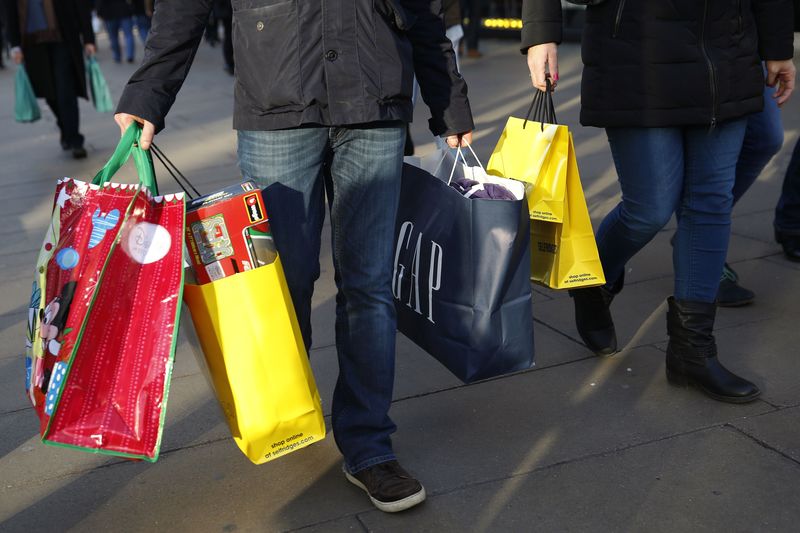By Andy Bruce and David Milliken
LONDON (Reuters) - British inflation plunged to its lowest level since May 2000 last month and Bank of England Governor Mark Carney said it looked set to fall further.
Official figures on Tuesday showed the annual rate of consumer price inflation halved to 0.5 percent in December from 1.0 percent in November.
The tumble reflected a slide in global oil prices. Coming four months before a national election, the government said it was good news for consumers, boosting their spending power after years of weak wage growth.
It also may delay any rate rise from the Bank if price falls spread beyond food and energy.
Most economists say Britain, where consumer spending remains strong and wages are starting to rise, faces less danger of deflation than the euro zone, where falling prices have sparked fears of a Japan-style economic stagnation.
Carney said that he expected inflation to drift lower in coming months, but then to return towards 2 percent.
"A little bit of inflation is good for the economy," he told the BBC. "We have the means at the Bank of England and the will and responsibility ... to bring inflation back up to the 2 percent target."
Carney added that he still expected interest rates to rise in the foreseeable future, though increases may be slower than once thought.
"It's a question of the pace of those interest rate increases, and the degree. Relative to a year ago, it is probably a little more gradual and a little more limited ... largely because of factors outside our shores."
Crude oil prices fell to their lowest level in nearly six years on Tuesday, pointing to further falls in inflation.
In November, the Bank predicted CPI would reach its target of 2 percent only towards the end of 2017. Financial markets are expecting the Bank to start raising rates only in early 2016.
Economists in a Reuters poll had expected inflation in December to fall to 0.7 percent. Sterling weakened after the data and was close its lowest level against the dollar in 18 months.
Carney said the Bank would look closely at Britons' inflation expectations, which at the moment show they think inflation will rise fairly close to the Bank's 2 percent target in coming years. Such expectations partially gauge whether consumers are minded to put off spending hoping for cheaper prices.
WEAKER INFLATION TO COME
After years of prices rising faster than wages, the inflation data may help the government of Prime Minister David Cameron to combat criticism from the opposition Labour Party that it has presided over a "cost of living crisis", one of the big political themes ahead of a May 7 national election.
"This acts like a giant tax cut for the economy, putting more money in the pockets of hard pressed-consumers," said Danny Alexander, the deputy Chancellor.
Economists flagged the possibility that British inflation could turn negative soon if oil prices -- which have already fallen 60 percent from their June 2014 peaks -- fall further.
"But we reject any notion that the UK faces serious risk of harmful deflation," said Michael Saunders, economist at Citi.
The Office for National Statistics said falling petrol prices and lower electricity and gas bills compared with a year ago were the biggest factors pushing down inflation in December.
Food prices, which have been pushed down by a supermarket price war and lower commodity prices, fell 1.9 percent -- their biggest fall since June 2002.
The ONS said prices at the factory gate fell 0.8 percent in the year to December, the biggest decline since September 2009 and a steeper fall than forecast by economists.

Britain's measure of consumer price inflation, like that in the euro zone, does not include house prices, which the ONS said on Friday were up 10 percent in the year to November.